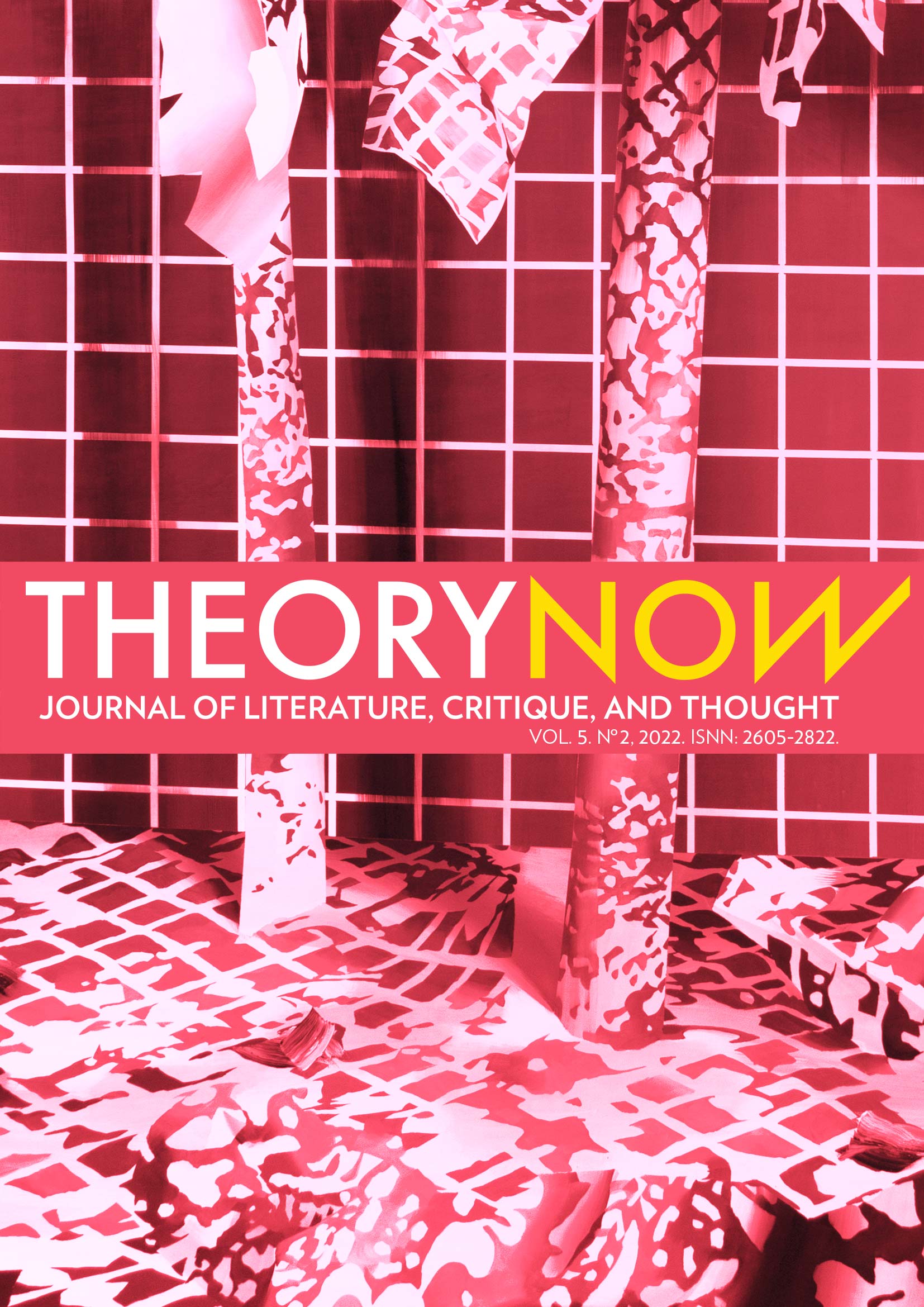Materialism and Finitude: Terry Eagleton's Marxism
DOI :
https://doi.org/10.30827/tn.v5i2.24462Mots-clés :
Terry Eagleton, materialism, finitude, Marxism, Herbert McCabe, LacanRésumé
This essay focuses on the change of emphasis–already announced in The Ideology of the Aesthetic (1997) and evident in Sweet Violence (2003)–that took place in Eagleton’s writing at the turn of the century: from showing a historicist scepticism about universals to advocating acknowledgment of human creatureliness (frailty, suffering, death) without which any political project would fail. This change coincided with an approach to a Thomist version of the Christian religion that reflected the influence on Eagleton of his friend the Dominican Herbert McCabe and with a profound interest in Jacques Lacan. The article argues that this change did not affect Eagleton’s Marxist faith or imply shunning political action. Rather, the turn concerned the materialist basis of Eagleton’s proposal of a just life. The appeal to existential forces entailed, on the one hand, a critique of left historicism and of the postmodern cult of culture and relativism and, on the other, an attempt to reinforce a Marxist critique of capitalism and the resistance against fundamentalism, Nihilism, and consumerism. To propose his idea of the just life Eagleton appropriates both the notion of Christian charity–the idea of self-realization through love and solidarity–together with the Thomist conception of morality rooted in the body, and Lacan’s imperative “do not give up on desire”.
Téléchargements
Références
Adorno, Theodor W. Negative Dialectics. London, Routledge, 1990.
Anderson, Perry. “Components of the National Culture”, New Left Review, vol. 50, no. 1,1968, pp. 3-57.
Althusser, Louis. Essays in Self-Criticism. London, NLB, 1976.
Badiou, Alain. Being and the Event. London, Continuum, 2006.
Boltansky, Luc, and Eve Chiapello. The New Spirit of Capitalism. London, Verso, 2006.
Burkett, Paul. Marx and Nature: A Red and Green Perspective. Chicago, Haymarket, 2014.
Callinicos, Alex. Equality. Cambridge, Polity Press, 2000.
____. The Resources of Critique. Cambridge, Polity Press, 2006.
____. “Two Cheers for Enlightenment Universalism: Or Why It’s Hard to Be an Aristotelian Revolutionary”. Virtue and Politics: Alasdair MacIntyre’s Revolutionary Aristotelianism, Paul Blackledge and Kelvin Knight (eds.). Notre Dame, Notre Dame University Press, 2011, pp. 54-78.
Callinicos, Alex, Stathis Kouvelakis and Lucía Pradella (eds.). The Routledge Handbook of Marxism and Post-Marxism. New York, Routledge, 2020.
Dawkins, Richard. The God Delusion. New York, Bantam, 2006.
Eagleton, Terry. Criticism and Ideology. London, NLB, 1976.
____. “Wittgenstein’s Friends”, New Left Review, vol. 135, no. 1, 1982, pp. 64-90.
____. Literary Theory: An Introduction. Oxford, Blackwell, 1983.
____. The Ideology of the Aesthetic. Oxford, Blackwell, 1990.
____. Marx and Freedom. London, Phoenix, 1997.
____. The Gatekeeper. London, Allen Lane, 2001.
____. Sweet Violence. Oxford, Blackwell, 2003.
____. After Theory. London, Allen Lane, 2004.
____. Holy Terror. Oxford University Press, 2006.
____. “Lunging, Flailing, Mispunching”, London Review of Books, vol. 28, no. 20, 19 October 2006, pp. 32-34.
____. “Jameson and Form”, New Left Review, vol. 59, no. 2, 2009, pp. 123-137.
____. Reason, Faith, and Revolution: Reflections on the God Debate. New Haven, Yale University Press, 2010.
____. Why Marx was Right. New Haven, Yale University Press, 2011.
____. Materialism. New Haven, Yale University Press, 2016.
____. “When Will Christ Come Again?”, New Blackfriars, vol. 102, no. 1099, 2021, pp. 318-321.
Engels, Friedrich. “Dialectics of Nature”. Collected Works, XXV. Karl Marx and Friedrich Engels. Moscow, Progress, 1987, pp. 313-587.
Foster, John Bellamy. Marx’s Ecology: Materialism and Nature. New York, Monthly Re- view Press, 2000.
____. The Return of Nature: Socialism and Ecology. New York, Monthly Review Press, 2020.
Lukács, Georg. History and Class Consciousness. London, Merlin Press, 1990. MacIntyre, Alasdair. Dependent Rational Animals: Why Human Beings Need the Virtues. London, Duckworth, 1999.
Marx, Karl. “Contribution to the Critique of Hegel’s Philosophy of Law. Introduction”. Collected Works, III. Karl Marx and Friedrich Engels. Moscow, Progress, 1975, pp. 175-187.
____. “Economic & Philosophic Manuscripts of 1844”. Collected Works, III. Karl Marx and Friedrich Engels. Moscow, Progress, 1975, pp. 229-346.
McCabe, Herbert. Law, Love, and Language. London, Sheed & Ward, 1968.
____. God Still Matters. London, Continuum, 2002.
Saito, Kohei. Karl Marx’s Ecosocialism: Capitalism, Nature, and the Unfinished Critique of Political Economy. New York, Monthly Review Press, 2017.
Timpanaro, Sebastiano. On Materialism. London, NLB, 1975.
Trotsky, Leon Davidovitch. “Class and Art”. On Literature and Art. New York, Pathfinder, 1970, pp. 63-82.
Wood, James. “God in the Quad”, The New Yorker, 31 August 2009, pp. 75-79.
Téléchargements
Publié-e
Comment citer
Numéro
Rubrique
Licence
Theory Now Journal of Literature, Critique, and Thought est une publication d’accès ouvert, immédiat et totalement gratuit pour les lecteurs autant que les auteurs. Les auteurs ne payent aucun frais pour le processus éditorial de leurs articles. Nous permettons la lecture, le téléchargement, la copie, la distribution, l’impression, la recherche, le lien ou la réutilisation de tous les travaux publiés à des fins non commerciales, à condition que l’auteur, la revue et l’entité éditoriale soient cités. La diffusion des articles dans les réseaux sociaux (Facebook, Twitter, LinkedIn, etc.) et scientifiques (ResearchGate, Academia.edu, etc.), les dépôts institutionnels universitaires et autres dépôts publics, blogs et web personnels ou institutionnels, Google Scholar, ORCID, ResearchID, ScopusID, etc., est vivement recommandée. Dans tous les cas, la propriété intellectuelle des articles et les possibles droits économiques dérivés d’eux sont conservés exclusivement par leurs auteurs.













